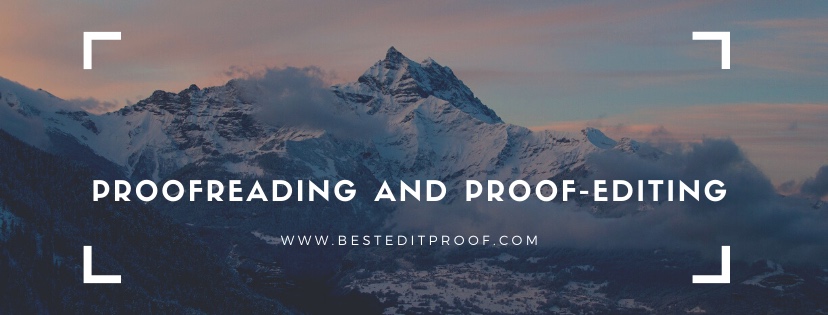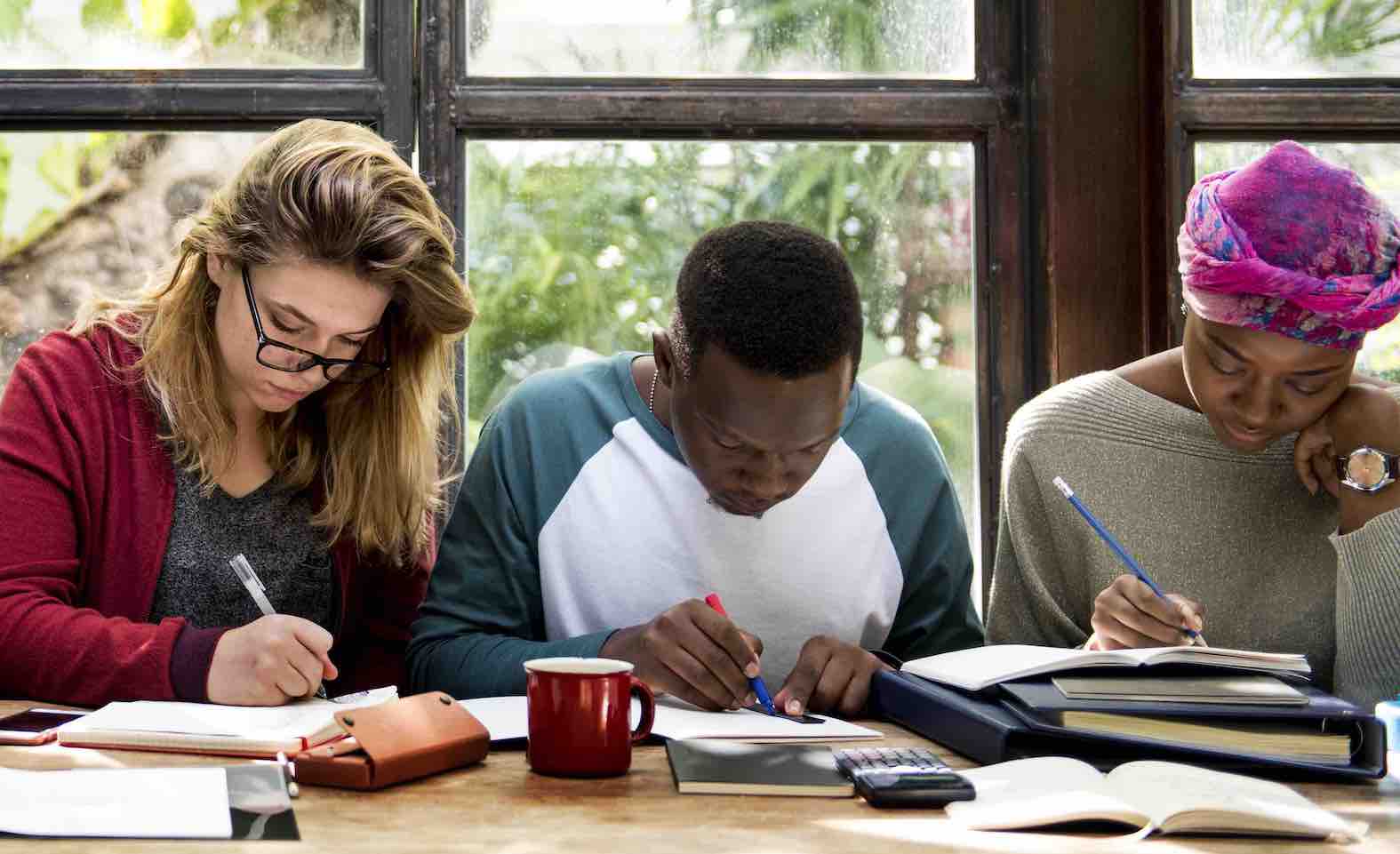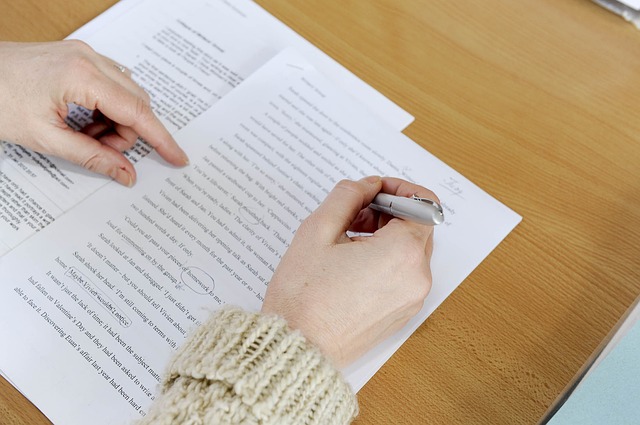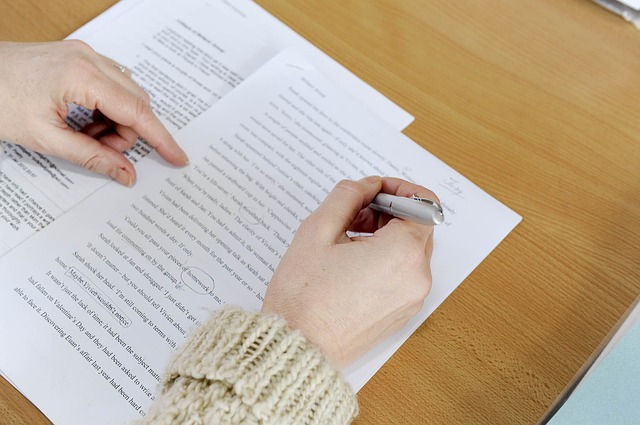Local institutions, firms, charities, or schools may not employ a doctorally qualified editor to edit or proofread the written materials to make them shine. Or the written material may have been created by a team, making it difficult to see the whole article in a broader perspective. In such cases, proof-editing gains importance. But what exactly is proof-editing? Proof-editing is a more detailed and time-consuming job than proofreading or mere editing.

Proofreading is one of the most important instruments to create a flawless document. In order to use this tool, it is necessary to work with extensive knowledge and patience.
Processes, such as defining a text, grammar editing, punctuation control, spelling error control, should be performed. In this context, proofreading is one of the most important parts of the writing process and is one of the basic procedures carried out on a text to render it flawless. It requires extensive knowledge and comprehension to correct a manuscript excellently. Proofreading is important when you need your document to be checked for errors in grammar, punctuation, syntax, spelling, and formatting. Therefore, the task of proofreading necessitates language expertise to detect and correct errors in grammar, punctuation, syntax, spelling, and vocabulary.
The fundamental goal of proofreading is to ensure that the written material is completely flawless. In order to guarantee perfection, a proofreader verifies accuracy in sentence structure, grammar, homonyms, punctuation, spelling, capitalization, consistency, and numbering. Proofreading is the final stage in the writing process. It is important to highlight here that, although it is the last step, it does not mean that it is the least important. A proofreading service ensures that your document is completely free of all English language errors (in grammar, punctuation, spelling, and typography) so that your manuscript stands out brilliantly.
The written material is sent to a designer or editor after the writing process is completed. Then, the proofreading phase begins. Some customers, however, expect more than that. Many companies that provide proofreading services state that they can spot errors more easily in a hardcopy manuscript than in a manuscript on a computer screen. This is understandable since the speed at which elements move, that is, appear and disappear on a computer screen, can play tricks on the human eyes. That is why BestEditProof.com follows a two-step process: proofreading the manuscript on a computer screen and then proofreading a hard copy of it. Furthermore, each step is performed by a different proofreader.

A proofreader controls the consistency of a post, ensuring that the text, visual elements, and general theme are delivered to the reader in the most understandable and proper way. Thus, writers should use proofreading services to be sure that their documents are error-free. However, a proofreader cannot be held responsible for the author’s written product. Before receiving the proofreading service, it is necessary to understand the terms and conditions.
Local institutions, firms, charities, or schools may not employ a doctorally qualified editor to edit or proofread the written materials to make them shine. Or the written material may have been created by a team, making it difficult to see the whole article in a broader perspective. In such cases, proof-editing gains importance. But what exactly is proof-editing? Proof-editing is a more detailed and time-consuming job than proofreading or mere editing.
Occasionally, some clients present manuscripts that require work that goes beyond mere proofreading as we have defined above. Thus, their requests may include amending raw text, making structural decisions, rewriting, reducing the amount of content, styling and laying out the text in the Word file of an author’s book manuscript so that it is ready for upload to a book publisher, and working directly in content management systems (assuming the lowly proofreader has the skill to do all this)! That’s right! These activities clearly do not fall within the scope of the definition of proofreading. Clients who make such requests really need and expect more than proofreading but do not yet realize what a difference a copyeditor can make. This, in effect, is a whole different ballgame—This is the world of ‘proof-editing’.
English language experts mostly recommend that you should not rely merely on your own revisions and improvements. Since you were deeply involved in the process of writing your article, essay, or book, there is always the possibility that your manuscript may contain some errors and that you may have missed some essential points. After you have completed your proofreading, it would be helpful to get someone else to proofread it for you. Hence, it generally requires a fresh pair of eyes to spot and correct any error you may have missed in your manuscript.
You might be surprised at the errors a proofreader might find, and that you had not noticed.
Moreover, an experienced proofreader with advanced knowledge will be a major advantage to you when it comes to making your manuscript stand out brilliantly. A proofreader ensures substantial improvements to the written English of your manuscripts and guarantees that your document meets the highest standard with flawless grammar and precise formatting.
There are several steps that should be completed by a proofreader before the client’s written material reaches its target audience. A proofreader fully understands how to make your manuscript stand out. Their main purpose is to guarantee your manuscript will be consistently error-free.
Proofreading services generally involve the following tasks:
Checking page headings and page numbers
Checking the table of contents, indexes, and appendixes by comparing the titles and page numbers to see whether or not they correspond
Detecting grammatical, punctuation, syntactical, spelling, and vocabulary errors
Improving consistency of the style
In this sense, a professional proofreader:
Compares the edited version of a written material
Uses proper grammar, punctuation, syntax, and spelling for a perfect manuscript
Controls page numbers and page titles
Reviews and ensures that the page structure of the contents is correct
Makes sure that the content is transferred to the reader consistently
Controls the parts that may need to be rearranged
Edits confusing and incomprehensible words
Ensures the content appears correctly
Eliminates contractions, colloquialisms, and personal pronouns (in the case of academic manuscripts) to give the document a formal tone. However, this rule does not apply to text directly quoted from their original source. Also, with respect to the use of personal pronouns in scientific writing, this depends on the requirements of the intended journal of publication of the manuscript.
Uses advanced vocabularies: Using comprehensive and advanced vocabularies in academic manuscripts is essential because this makes for high-quality manuscripts in terms of their being well written.
There are many things that must be handled by a proofreader. However, a proofreader can, up to a certain level, influence the content of a manuscript. Proofreaders do NOT:
Editing the content. When a proofreader spots some content that should be edited, they inform the author by leaving some comments. Editing services involve tasks beyond those of proofreading. Editing services improve the academic quality of your manuscript with respect to its content, analysis, referencing, and formatting. In a sense, editing services cover the initial proofreading service since all errors in grammatical, punctuation, syntactical, and spelling errors are corrected by an editor. Nonetheless, proofreading is done again by a proofreader once the manuscript has been edited.
Do cover copy-editing
Index the content titles but can makes recommendations with references from subject-matter experts.
Offer page layout and design services: This type of service requires different expertise; thus, a proofreader can see the issues in this regard but does not deal with them. They should simply leave a comment to the effect when necessary.
Control copyright of the content: No copyright, trademark, or the other intellectual property rights of the content is controlled by a proofreader. These items should be reviewed by the author.
Uses subject-matter jargon: One of the first things that editing services provide is to check the use of the appropriate terminology in a manuscript. This use is important because it aligns the manuscript appropriate to the field of study. Besides, when researchers use the language of the discipline, the ideas expressed in their manuscripts are easier to follow since they all speak the same “language”. It is for this reason that we at Best Edit & Proof match our clients’ manuscripts with doctorally qualified editors (also known as subject-matter experts—SMEs) who are essentially highly proficient in our clients’ field of study.
Many people think that proofreaders only examine the accuracy of words, misspellings, and punctuation errors. In fact, these are just some of the basic elements of this job. If you are not experienced and knowledgeable in grammatical, spelling, and punctuation mistakes in the language in which the manuscript is written, or if you do not have the ability to speed read, proofreading is not for you.
Proofreading requires general knowledge. You must have a high level of competence in the use of words and spelling. You must be able to focus, and exercise patience and discipline for long periods.
Best Edit & Proof expert proofreaders and editors aim to provide your manuscript with proper scholarly and academic tone and style. They will improve significantly the chances of having your research manuscript accepted for publishing. Our expert editors provide subject-matter proofreading and editing services in a number of fields categorized under various disciplines. Having considerable knowledge and expertise, they will help you find the right tone and style for your manuscript.
If you need our expert proofreaders to format your academic manuscripts, or to give you the fundamental rules for formatting your academic manuscripts as described in your guidelines, such as MLA and APA styles, then contact us. At Best Edit & Proof, our proofreaders and editors edit every type of academic manuscript. We have a user-friendly website and our ordering process is simple.

If you would like our language and subject-matter experts to work on your project and improve its academic tone and style, then please visit the order page. It’s easy! It takes only a few minutes to submit your manuscript and complete the process. Click here to see how it works.
We have flat-rate pricing based on the type of service, word count, and turnaround time. Enter your word count or copy and paste your document into our pricing calculator to get an instant quote.
If you need support for editing and proofreading services, contact us. You can also e-mail us or use the 24/7 live chat module to get direct support. We have a 24/7 active live chat mode to offer you direct support along with qualified editors to refine and furbish your manuscript. Alternatively, you can text us through our WhatsApp business line.
Follow us on Twitter, LinkedIn, Facebook, Instagram, and Medium.
For more posts, click here.
This handout discusses proofreading and proof-editing. To give you an opportunity to practice proofreading, we have left a few spelling, punctuation, or grammatical errors in the text. See if you can spot them! If you spot the errors correctly, you will be entitled to a 10% discount.
How Much Do Professional Editing and Proofreading Cost?
01.02.2022
How Much Do Proofreading and Editing Cost?
19.06.2021
How to Choose a Dissertation Editor in 3 Steps
23.05.2022
8 Proofreading Tips: Everything to Understand the Process
30.04.2022
Dissertation Proofreading: Four Easy-to-Follow Steps
28.04.2022

Every book that you read, every newspaper and magazine you subscribed to, every blog that you have come across — all went through the radar of editing and proofreading before coming to you. So, if you are thinking about whether you can make a career in the field of editing and proofreading or not, the answer is yes. The only thing is, you need to have the talents and the qualifications, all of which we will discuss in this article. Therefore, if you are ready, let us look at all the things you need to know to become a proficient editor or proofreader.
Continue Reading
Editing and proofreading your manuscript is an important step before submitting it to peer-review journals. In this guide, we will go through the step-by-step process of editing and proofreading before your manuscript gets submission-ready.
Continue Reading
Academic papers demand writing styles that have various rules and regulations to maintain. Therefore, it is natural for first-timers to make several mistakes. As they say, you learn from your mistakes. Yet, writing an academic or research paper is a big deal, and you would like to avoid mistakes as much as possible. As we understand the need to not make any mistakes while writing academic or research papers, we have put together the most common editing and proofreading mistakes that almost every first-timer makes when they first start writing academically. This article discusses 5 common editing and proofreading mistakes.
Continue Reading
No matter what type of article or content you're working on, editing and proofreading can do wonders to improve your work and give the perfect finishing touch to it. While many think that editing and proofreading are just formalities, these contribute to the quality of your work. Precisely why editing and proofreading are essential steps in the writing process and which have professionals dedicated to this field. If you, too, are wondering how these two activities can help you improve your work, this article is all that you will need.
Continue Reading
This article will give you a couple of simple proofreading tips to improve your academic writing, such as your dissertation, thesis, or college essays. First, you should know that proofreading is a task that is different from editing. Although they share some of the same skills, these tasks are not synonymous with each other.
Continue Reading
No matter what you are working on, be it a commercial project or an academic work — editors and proofreaders are indispensable individuals to your team. While many researchers believe that they can make it without an editor and proofreader, the truth is having someone to check and recheck your work can help elevate the quality of your work by leaps and bounds. There are several reasons why you should let someone edit and proofread your work. But before all that, we will help you understand what an editor and proofreader can help you achieve. This article gives you some basic information so you can understand the roles of editors and proofreaders, along with how they can help you improve your work.
Continue Reading
No matter what anyone suggests, you should always get your work edited and proofread. That is a rule that you, as a writer, should always abide by. However, how do you choose the right editing and proofreading services? If you were to go online and search for such services, you would easily come across a dozen such service providers. But how do you recognize which one is right for your needs and which one is reliable? In this article, we will address that question and discuss a few factors that will help you choose the right editing and proofreading services.
Continue Reading